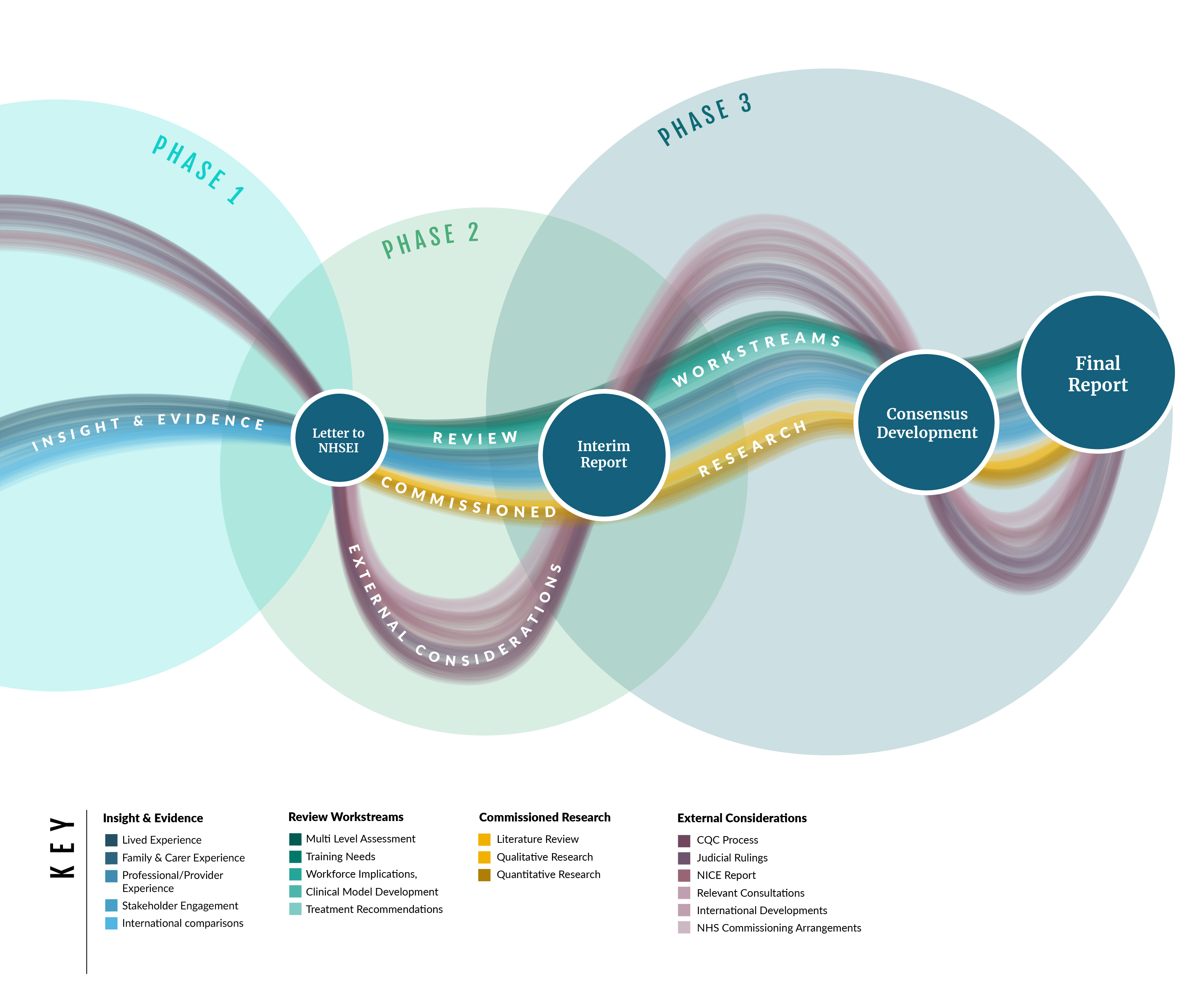Approach

The Review will be highly participative and will involve dialogue with children and young people with lived experience, and their families, as well as professionals with relevant expertise.
It will review national and international evidence, undertake qualitative and quantitative research, and facilitate consensus building discussions, in order to make recommendations on how services and treatments should be delivered to provide the best support and care for children and young people.
The Review will be wide-ranging in scope, looking at different aspects of gender identity services, from primary care through to specialist services, with a focus on how care can be improved. This will include key elements such as how and when young people are referred to specialist services, and the clinical decisions around how doctors and healthcare professionals support and care for patients with gender dysphoria.
It will also set out workforce recommendations for local and specialist healthcare professionals and examine the recent rise in the number of children seeking treatment.
Principles
The Review will be guided by the following principles:
- The welfare of the child and young person will be paramount in all considerations
- Children and young people must receive a high standard of care that meets their needs
- There will be extensive and purposeful stakeholder engagement, including ensuring that children and young people can express their own views through a supportive process
- The Review will be underpinned by research and evidence where available, and international models of good practice will be included
- There will be transparency in how the Review is conducted and in how the recommendations are made
- There are no pre-determined outcomes in regard to the recommendations the Review will make.
Review process

